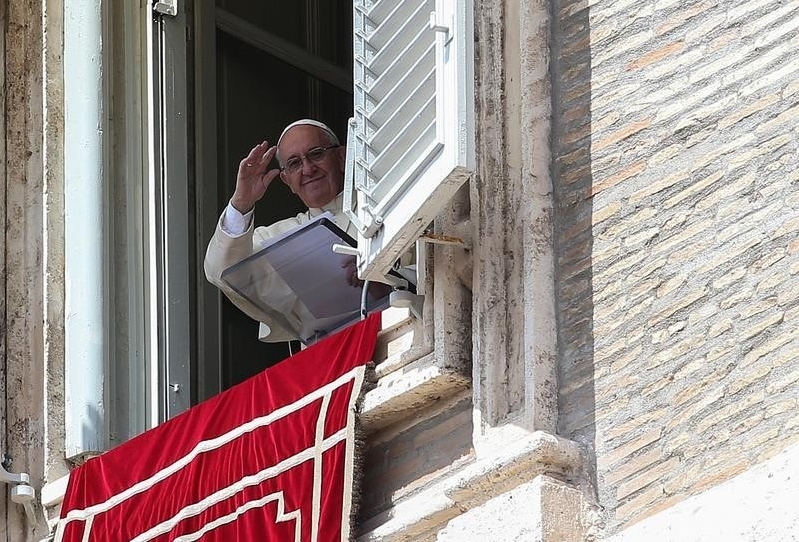
Pope Francis has urged church leaders to strive to serve others rather than gain power and greatness, as a "worldly spirit" only divides and destroys the body of Christ.
In a sermon delivered on Tuesday, the pontiff argued that Jesus speaks a language of humiliation, death and redemption, while some in the church "speak the language of climbers" and think only of gaining power and prestige.
"The greatest is the one who serves the most, the one who is always at the service of others, not the ones who boast, who seek power, money, vanity and pride," he said, according to Catholic News.
Francis cited Mark 9:30-37, where Jesus responds to the disciples as they argued about who was the greatest among them.
"If anyone wishes to be first, he shall be the last of all and the servant of all," Jesus tells them.
Just like the disciples in the New Testament, many pastors today are tempted to seek power and success - even though Jesus calls His followers to live a life where "service is the rule."
The search for power, the pope said, "is a story that happens every day in the church, in every community: 'Who is the greatest among us?' 'Who is in charge?' Ambitions; in every community -- in the parish or in institutions -- there is always this desire to climb, to have power."
Those who have the "worldly desire" to seek vanity and power "spare no expense to get there (through) gossip" and destroying other people's reputations, Francis added.
"Envy and jealousy make these paths, and they destroy; we all know this. This happens today in every institution of the church: parishes, colleges and other institutions, even among bishops ... everyone. It is the desire of the spirit of the world which is a spirit of wealth, vanity and pride," the pope said.
The pontiff argued that the worldly spirit is a temptation "to destroy the other in order to rise up," which only "divides and destroys the church."
"It would do us well to think of the many times we have seen this in the church and the many times that we have done this, and ask the Lord to enlighten us, to understand that love for the world -- that is, for this worldly spirit -- is the enemy of God," Pope Francis said.
Earlier, the pontiff explained that many believers do not truly understand the definition of "Christian humility."
"Christian humility is not within the virtue of saying: 'I am not important' and hiding our pride," he said. "No, Christian humility is telling the truth: 'I am a sinner'. Tell the truth: this is our truth. But there is another truth: God saves us. He saves us when we are on the margins; He does not save us in our certainties. Let us ask for the grace of having the wisdom to put ourselves on the margins, for the grace of humility so that we may receive the Lord's Salvation".
Francis has called on Christians to help others throughout his time at the Vatican, particularly amid the ongoing refugee crisis in recent times. Earlier in April Francis visited the Aegean island of Lesbos in Greece, which is hosting many people fleeing Syria, where he prayed with those living in refugee camps.
"Though many of their graves bear no name, to you each one is known, loved and cherished," Francis prayed. "Wake us from the slumber of indifference, open our eyes to their suffering and free us from the insensitivity born of world comfort and self-centeredness."
Francis urged world leaders to continue working on a solution to continued terrorism and civil war in Syria: "We have come to call the attention of the world to this grave humanitarian crisis and to plead for its resolution," the pontiff said.
"As people of faith, we wish to join our voices to speak out on your behalf," the pope added. "We hope that the world will heed these scenes of tragic and indeed desperate need, and respond in a way worthy of our common humanity."






